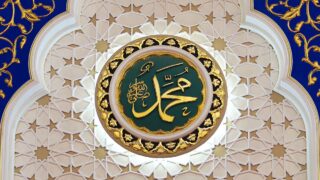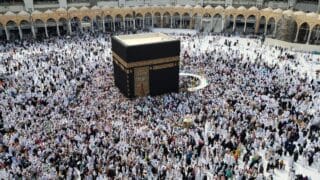The Prophet gave a summary of his teachings in his farewell address, which can be analysed under three main headings:
1. Belief in the One God
2. Rule of Law and Morality
3. Rule of Justice
1. Belief in the One God
Monotheism – pure, simple, uncomplicated and unmixed – is the foundation on which the Islamic system of belief is based.
Only the invisible God, and none other, is worthy of worship and is worshiped without any icons or other material representation.
He is capable of doing all things, although He is One. He is not only the Creator, but also the Master of all; hence the multiplicity of His Attributes expressed by His ninety-nine Beautiful Names.
The Divine Attributes or any of them do not stand by themselves and as such are not worshiped as independent entities as the idol-worshipers do.
2. Rule of Law and Morality
The Qur’an and the conduct of the Prophet were to serve as the basis of law and a healthy criterion in every aspect of human life.
Vendetta and private justice were abolished.
All believers are equal without distinction of race.
No one is superior to any other except by individual excellence in piety and fear of Allah. Excellence of moral character is the only criterion of individual superiority in the eyes of Allah.
However, every person enjoys equality in the eyes of the law and in the eyes of Allah, by reason of his being a member of the human race.
3.Rule of Justice
Each and every human being has three fundamental sacrosanct rights concerning his person, his property, and his honour.
There should be constant redistribution and circulation of the private wealth of the nation (Ummah).
The accumulation of property, as a rule, is to be avoided by means of the prohibition of interest; the obligation of inheritance and distribution of deceased persons’ property among near relatives of both sexes; and restrictions on wills so that no more than one-third could be given by legacy.
The rights of women were recognized and emphasized.


















